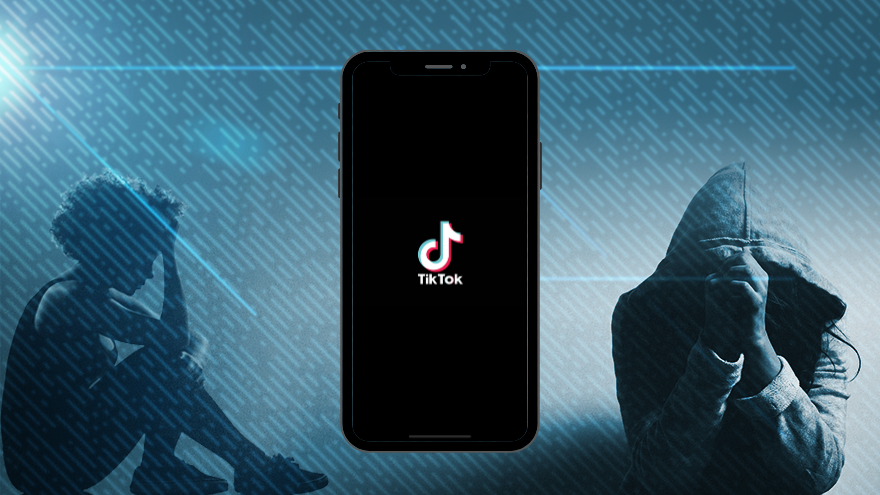New data has been published showing that greater social media usage among teens coincides with declining mental health.
Teens who spend more than five hours per day on social media are 60 percent more likely to have suicidal thoughts or harm themselves; 2.4 times more likely to have a negative view of their body; and 40 percent more likely to report feeling sad, according to a new research brief from Gallup and the Institute for Family Studies.
In the study, these mental health problems were only associated with YouTube and TikTok. No negative effects were found for Instagram, Twitter, Facebook, or other platforms, “perhaps because teens use these platforms less and/or use them for different reasons,” as the study notes.
Researchers found that mental health of U.S. teenagers has declined over the past 10 to 15 years. The report states that suicide rates have doubled for girls and increased 50 percent for boys.
Part of what drives negative mental health outcomes for people who spend a lot of time using social media is that many popular apps were intentionally designed to be addictive, with features from cognitive and psychological theories, such as variable rewards, social reciprocity, infinite scrolling, gamification, and others.
Those characteristics make over-indulgence easy. Researchers behind the study said, “The level of mental difficulty in avoiding social media overuse is subjectively comparable to the level of effort needed to reach exercise and dietary goals.”
Social media can breed negative social comparisons where people compare their lives to the best, photo-shopped images of others, the researchers said, which can lead to extreme dissatisfaction with one’s body.
Depressive or anxious symptoms may also arise from “social media conveying emotionally driven, irrational, and divisive perspectives on popular culture or news issues,” according to the report. Additionally, social media use can replace offline activities, including time spent with friends and family, which can weaken relationships. Social media can also displace physical activity, leading to disease, weakness, fatigue, or other outcomes that can negatively impact mental health.
The new data also “show that teens who gravitate toward higher social media use rate themselves as being less conscientious more generally and rate their relationships with their parents as weaker and less loving, often saying they spend long periods without parental supervision.”
As stated in the report, the findings show that young people may be overusing social media.
The average U.S. teen spends 4.8 hours per day using social media. The overwhelming majority (98 percent) of youth say that they have used at least one of the most popular social media apps in the last year. Nearly 30 percent of teens spend six hours or more using social media, while fewer than 11 percent say they only use it for an hour or less.
Parents are far from powerless in combatting harmful effects of social media, the report said. Parents, school administrators, and other authority figures must teach character traits like self-restraint, while regulating screen time and social media access.
“Children who exhibit greater self-control and/or live with parents who restrict screen time, supervise them, and sustain a strong relationship spend much less time on social media than those without these characteristics,” Jonathan Rothwell, principal economist at Gallup, wrote in discussion of the survey data.
“If living with a parent who agrees or strongly agrees that he or she restricts screen time, the adolescent reports 1.7 fewer hours, on average, of social media use, compared to adolescents whose parent does not restrict screen time,” he added. “Youth who report a stronger and more loving relationship with their caregivers and spend less time unsupervised also use social media less frequently.”

